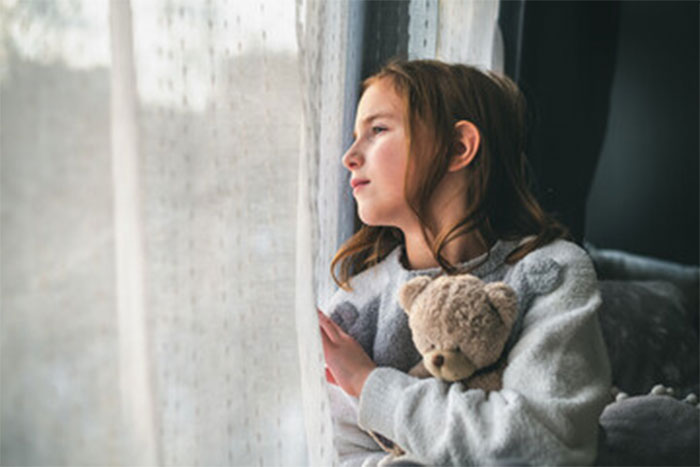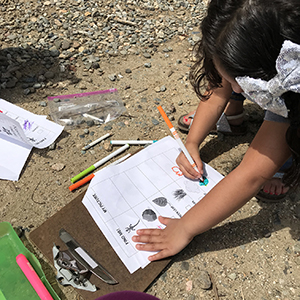I’m grateful for the little moments that start to feel like pre-pandemic life. Before 2020, I never thought that going to a grocery store or a friend’s house without being afraid to touch things or breathe air was cause for a celebration. But after nearly two years of the pandemic, these “small” things make a big difference. While I’m hopeful that the worst of the pandemic is over, I’m deeply concerned about the extent of the pandemic-related emotional and behavioral health challenges faced by many children, youth, and adults. The holidays can be a challenging time anyway for mental health, so it’s even more important that we care for ourselves and each other at this time of year.
This monthly article provides tips for families raising children, based on the world-renowned Triple P – Positive Parenting Program, available to families in Santa Cruz County. If you have a question for a future column, please email [email protected].
Dear Nicole,
I’m worried about my children’s mental health (they’re 8 and 13). They used to enjoy being around people at home and school, but now they isolate themselves in their rooms and don’t want to go anywhere, especially school. It’s a daily struggle to get them to go to school. I’ve tried talking with them to find out whether there’s a problem with teachers, other kids, or their schoolwork, but they don’t want to open up to me. Do you have any suggestions?
Priya
Dear Priya,
You’re not alone. The emotional and behavioral health of children and teens was of concern before COVID, but the pandemic-related stress, fear, grief, and uncertainty has intensified mental health challenges for kids of all ages. According to the American Academy of Pediatrics, emergency department visits for mental health emergencies increased between March and October 2020 by 24% for children ages 5-11 and 31% for children ages 12-17. In early 2021, there was more than a 50% increase in emergency department visits for suspected suicide attempts among girls ages 12-17, compared to 2019. As a result, pediatricians, psychiatrists, and children’s hospitals recently declared a national state of emergency in child and adolescent mental health.
So you are wise to pay attention to changes in your children’s moods and behaviors. Here are some tips that may help your family:
Continue checking in with your kids. Have “casual conversations” about things your children are interested in—food, sports, clothing, music, social media, their friends, or other hobbies. Keep the lines of communication open, ask questions, and encourage them to express their thoughts and feelings. This can lead to more in-depth discussions about their moods, eating and sleeping patterns, changes in social relationships, difficulties at school, or other issues that are weighing on their minds.
Validate their feelings. If your kids open up, then listen, acknowledge their feelings, and thank them for sharing—even if you don’t share the same interests or agree with their opinions. Hold off on trying to reassure them that everything will be fine or telling them the situation is not as bad as it seems. Remember that kids are more likely to believe those words once they feel someone believes them. Simply saying, “I can see you feel strongly about that,” or, “That’s a big emotional weight to carry,” can have a calming effect.
Do “family stress busters” together. Go on a walk, spend time in nature, have a family game night, watch a movie, exercise, read, play music, take naps, or do mindfulness exercises together. Do things that make you laugh or just appreciate being with each other. Spending quality time together is a Triple P parenting strategy that builds positive, loving family relationships, which helps “buffer” kids from the effects of stress, anxiety, and depression.
Seek help and support from other sources. Schedule a health check-up for your kids with their medical provider. This can help identify any physical, mental, or behavioral health concerns and connect your children to helpful resources such as counseling. Many schools also offer counseling and other resources that teach children and teens tools to manage stress and other emotions. Remember to seek support for your own mental health, too.
FINAL THOUGHTS: Life is stressful, even overwhelming at times. If you or your children find that these tips aren’t enough to cope with mental health challenges, contact professionals in your community for additional support. If someone is in immediate distress or in danger of hurting themselves, call the National Suicide Prevention Lifeline at 1-800-273-TALK (8255) or text the Crisis Text Line (HELLO to 741741).
Nicole Young is the mother of two children, ages 19 and 22, who also manages Santa Cruz County’s Triple P – Positive Parenting Program, the world’s leading positive parenting program. Scientifically proven, Triple P is made available locally by First 5 Santa Cruz County, the Santa Cruz County Health Services Agency (Mental Health Services Act) and the Santa Cruz County Human Services Department. To find a Triple P parenting class or practitioner, visit triplep.first5scc.org, www.facebook.com/triplepscc, or contact First 5 Santa Cruz County at 465-2217 or [email protected].







